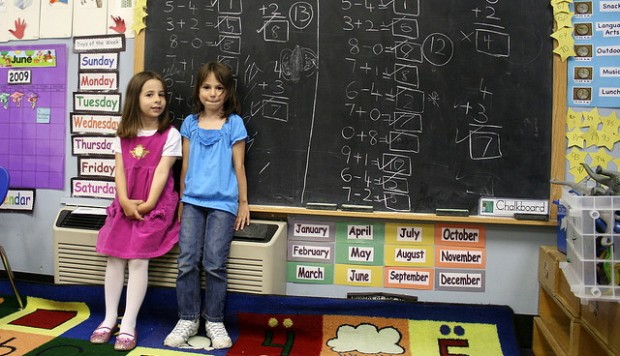
Do girls need special attention when it comes to science, math, and technology topics? In response to last week's article about Techbridge, the after-school science program specifically geared to girls, some readers strongly refuted the notion that girls need the extra nudge.
"'Steering' something suggests directing it in a path it would not normally, of its own inclination, go!" wrote reader Julian Penrod. "The very title connotes a program to give an impression of female overall interest in the hard sciences, even though it wouldn't necessarily, on its own, exist. In other words, a fraud."
The reader raises a subtle but important issue -- but it goes much deeper than that. According to Claude Steele, author of Whistling Vivaldi and Other Clues to How Stereotypes Affect Us, it's not that girls aren't necessarily interested in science and math, it's whether they're discouraged from following their interests because of the persistent stereotype that girls aren't good at that sort of thing.
Steele has examined this very phenomenon closely for years and has identified it as a stereotype threat. The issue is much more complex than the very basic tendencies of what naturally interests either gender. Steele pinpoints the problem to what happens after girls follow their interests in science and math studies, when inevitable obstacles come up.
"When you perform in science and math... in the larger society you're stereotyped as not being good at it," Steele says of girls. "You experience a little frustration, you say, 'Am I confirming that stereotype and am I going to be seen to confirm that stereotype? Am I going to have to live under this pressure for the rest of my life if I choose this as a career?' So there's a pressure coming just from those stereotypes that discourages women from engaging in those fields and, and staying in those fields even when their skills and abilities are A-plus. So that's an extra burden."
